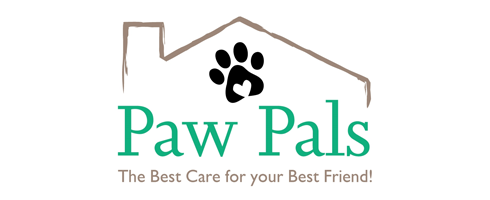As the vibrant hues of spring bloom across Northern Virginia, so do the challenges for dogs who suffer from seasonal allergies. If you’re like many pet owners with a busy lifestyle, it’s not always easy to proactively manage your dog’s allergy symptoms, especially while attending events, balancing work, or prepping for spring travel. That’s where a trusted pet sitter can provide valuable support.
From ensuring cleanliness to administering supplements or wiping down paws after a walk, a pet sitter plays a key role in minimizing your dog’s allergy symptoms. Below are comprehensive care strategies—many of which a pet sitter can help implement—to ensure your dog stays comfortable and allergy-free all season long.
Why is Maintaining a Clean Environment Important?
 Keeping your dog’s environment clean is one of the most effective ways to minimize allergens like pollen, mold spores, and dust mites. Frequent vacuuming—especially in areas where your dog spends time—can dramatically reduce their exposure to these triggers. Upholstered furniture, rugs, and pet bedding tend to harbor allergens, so regular cleaning is essential.
Keeping your dog’s environment clean is one of the most effective ways to minimize allergens like pollen, mold spores, and dust mites. Frequent vacuuming—especially in areas where your dog spends time—can dramatically reduce their exposure to these triggers. Upholstered furniture, rugs, and pet bedding tend to harbor allergens, so regular cleaning is essential.
Do Dog Bath Wipes Really Work?
Absolutely. Dog bath wipes are a quick, effective way to remove surface allergens from your dog’s coat, especially after walks or outdoor playtime. While not a substitute for baths, they’re perfect for daily use to prevent pollen and dust from lingering on fur and skin.
How Can I Boost My Dog’s Immune System?
Minimizing your dog’s discomfort from seasonal allergies begins with a strong immune system. Like humans, a dog’s immune system plays a vital role in defending against the allergens they’re exposed to daily—such as pollen, mold spores, and dust. When your dog’s immune response is healthy and balanced, the effects of these allergens can be less severe.
Start with a high-quality, nutrient-dense diet that supports overall health. Look for dog food with real ingredients, minimal fillers, and added vitamins and antioxidants. Foods rich in vitamin E, C, and beta-carotene can help reduce inflammation and support immune resilience.
Should I Upgrade My Home’s Air Quality?
Absolutely. Airborne allergens like pollen, mold spores, dust, and pet dander are common triggers for dogs during allergy season. Many of these irritants enter your home through open windows and doors or cling to your clothing and shoes as you come and go.
Improving your home’s air quality can reduce the number of allergens your dog is exposed to indoors. Start by replacing HVAC filters with high-efficiency filters that are designed to trap fine particles and allergens. During peak allergy seasons—typically spring and fall—it may help to change these filters more frequently than usual.
Consider investing in a home air purifier with a HEPA filter, particularly in the rooms your dog spends the most time in. These purifiers can clean the circulating air of allergens, offering relief to allergy-sensitive pets.
Regular cleaning also plays a role. Vacuum carpets, rugs, and upholstery using a vacuum with a HEPA filter. Wash your dog’s bedding frequently, and wipe down floors to prevent allergens from accumulating.
What Are the Benefits of Omega-3 Supplements for Pets?
Omega-3 fatty acids, commonly found in fish oil supplements, offer a variety of health benefits for dogs, particularly those suffering from environmental allergies. These fatty acids—specifically EPA and DHA—are natural anti-inflammatories. When included in your dog’s daily regimen, they help improve the skin’s barrier function, reduce excessive shedding, and relieve dryness and itchiness.
Omega-3s support healthy skin by locking in moisture, which is particularly powerful for dogs that develop dry, flaky, or irritated skin when exposed to allergens. Over time, these supplements lead to a shinier coat, fewer skin infections, and an overall reduction in scratching and discomfort.
Always speak to your veterinarian before starting a new supplement, especially if your dog is already on medication or has a preexisting condition.
When Should I Be Concerned About Hot Spots?
Hot spots are painful, inflamed patches of skin that appear suddenly and quickly worsen. They’re often triggered by constant licking, chewing, or scratching—common behaviors in dogs struggling with allergies. Hot, humid weather can exacerbate these skin issues.
Signs to watch for include red, oozing sores; localized hair loss; swelling; and increased licking or nibbling in a specific area. These areas are prone to infection, so prompt treatment is essential.
Mild hot spots may be relieved with gentle cleaning and topical antibiotic ointments. Severe or spreading areas should be evaluated by a veterinarian for proper care. A pet sitter who checks in on your dog regularly can be helpful in early detection and monitoring.
What Role Does Coconut Oil Play in Allergy Relief?
Coconut oil continues to gain popularity as a natural remedy for various canine skin issues—including those caused by allergies. When added in moderation to your dog’s food, coconut oil can help keep their skin hydrated and may help reduce inflammation related to immune responses.
Topically, coconut oil can be soothing when applied to areas of dryness, irritation, or mild hot spots. It forms a barrier on the skin that locks in moisture and shields against irritants. However, because it can be greasy and may encourage licking, it’s best used in small amounts and applied under supervision.
As with any supplement, consult your vet before adding coconut oil to your dog’s routine.
How Do I Treat My Dog’s Itchy Paws?
 Paw irritation is another common problem during allergy season. Walking on grass, pollen-covered sidewalks, or even carpeted indoor surfaces can trigger itchiness, swelling, or redness between the toes and around the pads.
Paw irritation is another common problem during allergy season. Walking on grass, pollen-covered sidewalks, or even carpeted indoor surfaces can trigger itchiness, swelling, or redness between the toes and around the pads.
A simple and effective remedy is a paw soak. A diluted solution of water and apple cider vinegar (50/50 mix) can help cleanse allergens, reduce itchiness, and prevent yeast infections. Just soak your dog’s paws for a few minutes, then gently dry. For dogs that tolerate foot handling, cooling wipes or hypoallergenic paw balms can also be used.
What Shampoo Should I Use for My Allergy-Prone Dog?
If your dog suffers from seasonal allergies, using the right shampoo makes a significant difference. Avoid harsh commercial shampoos with synthetic fragrances and chemicals. Instead, choose oatmeal-based, medicated, or hypoallergenic shampoos designed to moisturize and soothe inflamed skin.
Bathing your dog every few weeks can help wash away allergens, reduce itching, and keep the skin healthy. Dogs exposed to heavier pollen concentrations may benefit from more frequent rinses. Even water-only rinses between full baths can offer relief.
When Should I Consult a Veterinarian?
Some dogs experience mild allergy symptoms that can be managed at home with medication, hygiene, and supplements. Others may require professional treatment. If your dog shows signs of persistent itching, coughing, ear infections, hair loss, or chronic hot spots, it’s time to consult your veterinarian.
A vet might recommend allergy testing, prescription antihistamines, medicated shampoos, or immunotherapy depending on your dog’s needs. Clear communication between you, your vet, and your pet sitter ensures your dog gets proper care even when you’re not home. Pet sitters trained to administer medication can be a helpful resource for managing your dog’s allergy treatments on a consistent schedule.
Trusted Care from Northern Virginia’s Top Pet Sitter
Managing your dog’s seasonal allergies requires consistency, attention to detail, and daily care—especially during peak allergy months. At Paw Pals Pet Sitting, our professional dog sitters and walkers are trained to provide the kind of support your dog needs to stay happy and healthy at home.
Whether you’re traveling, working long hours, or just need a helping hand with your dog’s allergy care routine, we’re here to help with personalized, compassionate service. From paw wipes to playtime, from supplements to snuggles, we treat every pet as if they were our own.
Contact Paw Pals Pet Sitting today to schedule a consultation. Let’s work together to keep your dog comfortable, cared for, and allergy-free this spring—and beyond.


